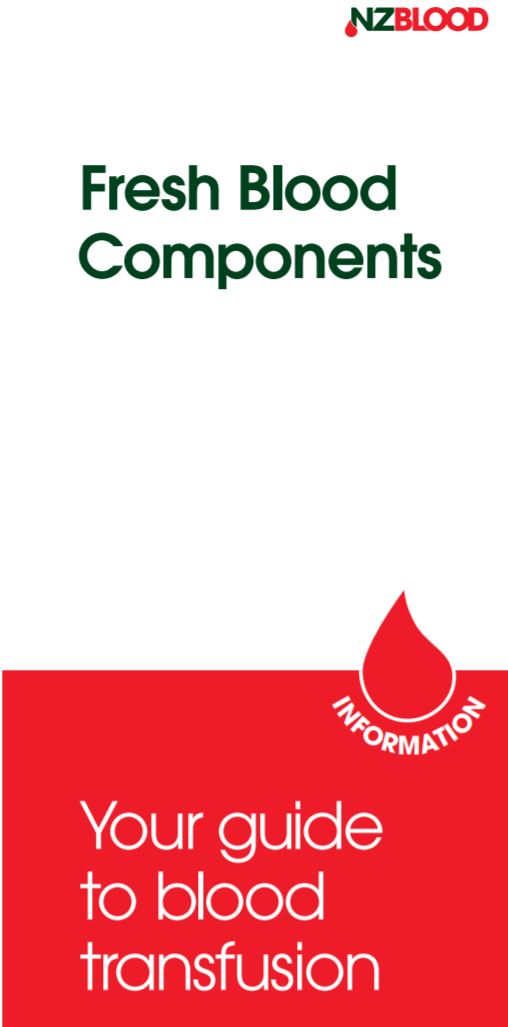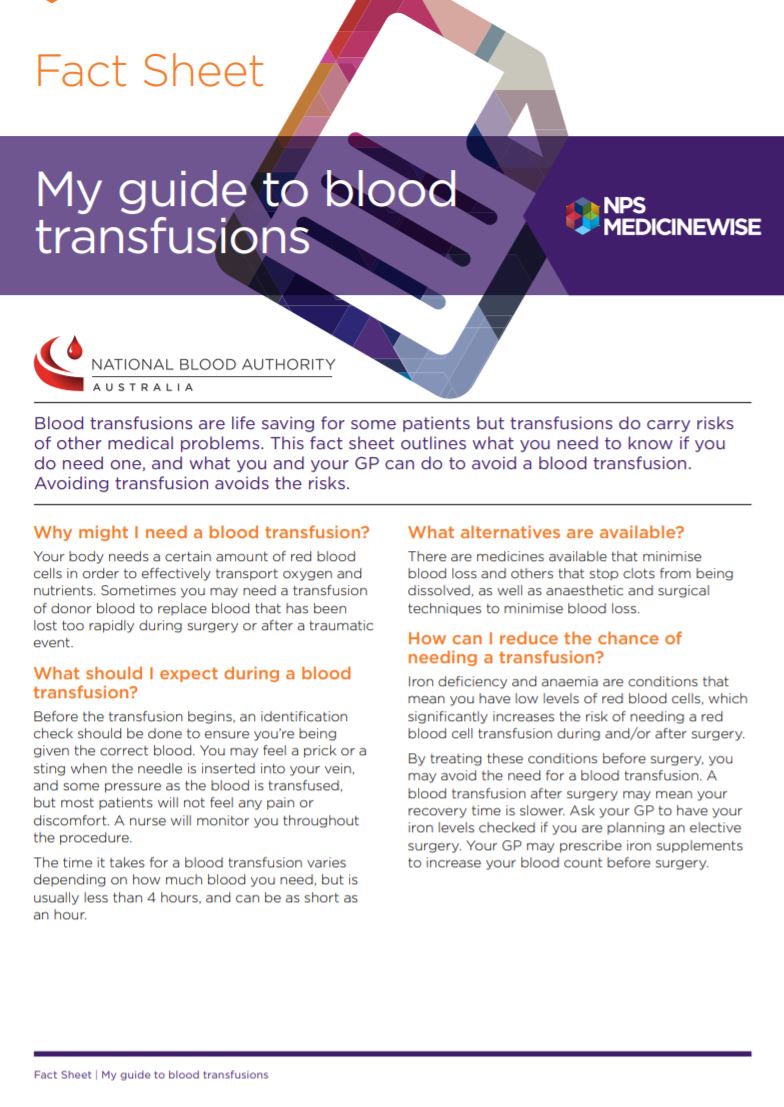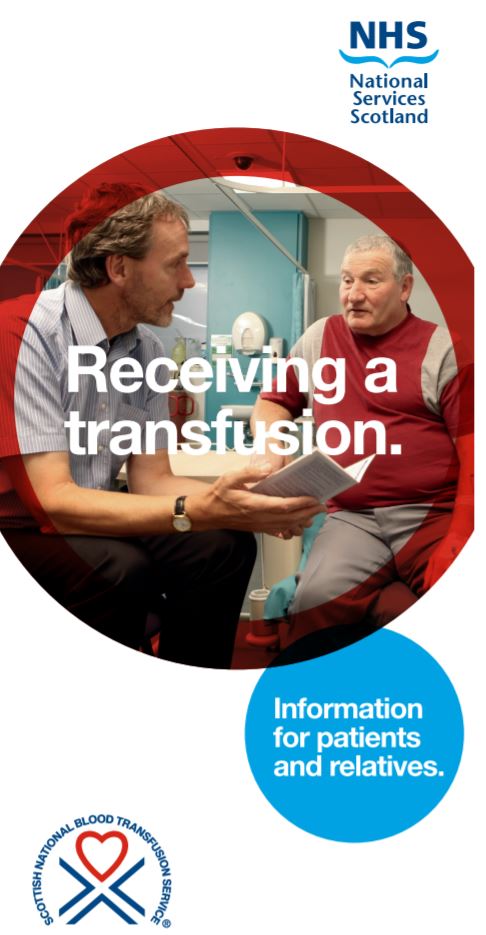A blood transfusion is an extremely safe procedure and treatment. It can save many lives.
Before donor blood is given to you, it is always tested and screened for infections such as HIV/AIDS, hepatitis B, hepatitis C and syphillis. Both your blood and the donor blood are also tested to check for blood group types and antibodies to avoid a reaction due to them not being compatible.
The equipment used to collect blood are all sterile and only used once.
Your doctor will weigh the benefits against the risks of you having a blood transfusion. If your doctor recommends a blood transfusion, that will mean the benefits are greater than the risks.









